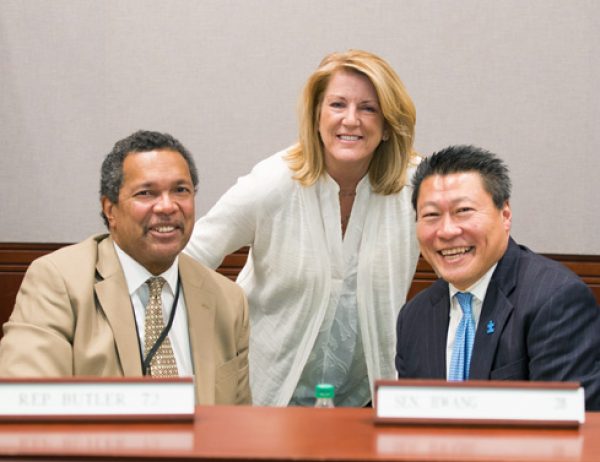The Connecticut General Assembly Housing Committee has passed two pieces of legislation aimed at improving and updating the controversial 1990 affordable housing state law known as “8-30g.” Designed to provide affordable housing, the statute has often been abused by developers, according to some municipal officials.

Co-sponsored by Committee Chair Sen. Tony Hwang, who represents Fairfield, Newtown, Westport, Weston and Easton, and Ranking Member Rep. Brenda Kupchick, representing Fairfield and Southport, House Bills 6880 and 7057 now await debate and passage in the House of Representatives.
H.B. 6880”™s provisions include:
- A five-year sunset provision putting towns on notice that they must use these changes to encourage and develop more affordable housing in their community;
- Lowering the minimum number of Housing Unit-Equivalent points that smaller municipalities must obtain to qualify for a moratorium, from 75 HUE points to 50 HUE points, to help smaller municipalities gain a moratorium under 8-30g;
- Encouraging the development of three-bedroom family units, senior units tied to family housing, and family units in incentive housing zones to encourage the development of these types of housing; and
- Making income-restricted units in an Incentive Housing Zone development eligible for points toward a moratorium, thus encouraging towns to adopt those development zones and take control of their affordable housing needs.
H.B. 7057”™s provisions include:
- Requiring that a rotation of judges hear these cases, in the districts where the judges sit;
- Adding to the units that count toward the 10 percent threshold and moratorium status certain mobile manufactured homes in resident-owned mobile manufactured home parks and other mobile manufactured homes;
- Lowering the threshold of the 2 percent HUE requirement for a moratorium to 1.75 percent if a municipality has adopted an affordable housing plan;
- Requiring each municipality, at least every four years, to prepare an affordable housing plan, which must include inclusionary zoning;
- Awarding bonus points for three-bedroom family units and senior units tied to family housing;
- Awarding assisted housing that is open to only seniors and people with disabilities HUE points;
- Awarding points for units that receive financial assistance under a governmental program for the construction or substantial rehabilitation of low- and moderate-income housing;
- Specifying that matters a commission may legally consider when reviewing an affordable housing application include “best planning practices” and “design standards”;
- Allowing a municipality to deny an application if the proposal is for 25 units or fewer and it exceeds the parcel”™s permitted density by more than 100 percent if certain conditions are met; and
- Making income-restricted units in an IHZ development eligible for points toward a moratorium.
In an interview with the Business Journal last month, Hwang identified revising statute 8-30g as one of his priorities this legislative session.





















